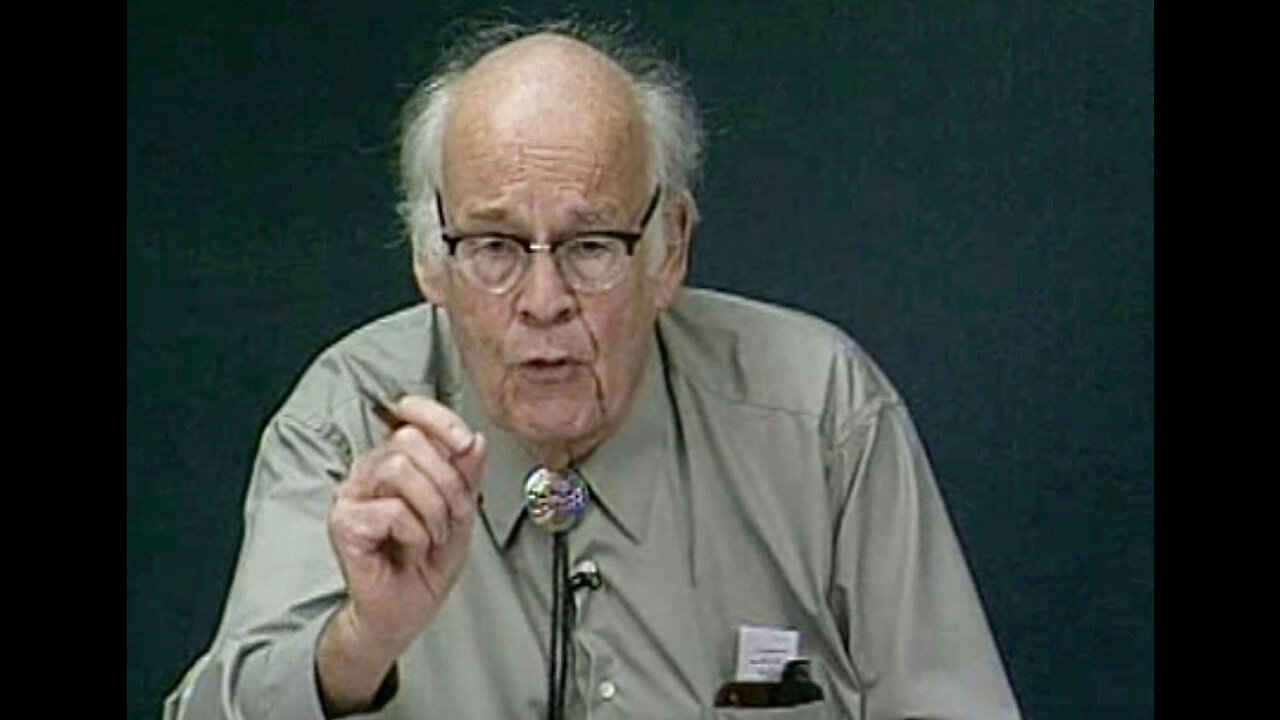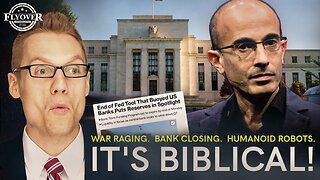Premium Only Content

A tribute to Professor Al Bartlett (1923-2013)
After working for a stint on Great Lakes ore freighters, Al Bartlett worked for 25 months in Los Alamos beginning in 1944. He then obtained a BA degree from Colgate University and MA and PhD degrees in Nuclear Physics from Harvard University in 1948 and 1951, respectively.
Professor Albert A. Bartlett had a significant impact on the Department of Physics at the University of Colorado, Boulder, Colorado. Al Bartlett joined the faculty at the Department of Physics in September 1950 and retired in 1988. He was President of the American Association of Physics Teachers in 1978.
In 1981 Dr. Bartlett received the Robert A. Millikan Award for his outstanding scholarly contributions to physics education.
Prof. Bartlett had a transformative influence on science education and public policy. In the late 1950s Professor Bartlett was an initiator of a citizens' effort to preserve open space in Boulder, Colorado, which ultimately led to the formation of The City of Boulder's Open Space Program. By 1999, the program has purchased over 26,000 acres of land for preservation as public open space. Professor Bartlett was a founding member of PLAN-Boulder County, a City and County environmental group. Professor Bartlett was also an initiator of the "Blue Line" amendment that kept houses from being built info Boulder's foothills by restricting city water supply to a maximum elevation.
Professor Bartlett gave his celebrated lecture, "Arithmetic, Population and Energy" 1,742 times since September 1969 to U.S. and international audiences. His audiences have ranged from junior high school and college students to corporate executives and scientists, and to congressional staffs.
Professor Al Bartlett began his one-hour talk with the statement, "The greatest shortcoming of the human race is our inability to understand the exponential function."
He then gave a basic introduction to the arithmetic of steady growth, including an explanation of the concept of doubling time. He explained the impact of unending steady growth on the population of Boulder, of Colorado, and of the world. He then examined the consequences steady growth in a finite environment and observes this growth as applied to fossil fuel consumption, the lifetime of which is much shorter than the optimistic figures most often quoted.
He proceeded to examine oddly reassuring statements from "experts", the media and political leaders - statements that are dramatically inconsistent with the facts. He discussed the widespread worship of economic growth and population growth in western society. Professor Bartlett explained "sustainability" in the context of the First Law of Sustainability:
"You cannot sustain population growth and / or growth in the rates of consumption of resources.
The talk brought the listener to understand and appreciate the implications of unending growth on a finite planet, and closed noting the crucial need for education on the topic.
For more information, see the Al Bartlett website at www.AlBartlett.org
-
 1:28:52
1:28:52
Kim Iversen
11 hours agoUnmasking the Truth: Most Censored Historian On Past Election Meddling, COVID, and Trump
63.8K60 -
 2:10:00
2:10:00
TheSaltyCracker
9 hours agoNow Lefties Lose Bathroom War ReeEEeE Stream 11-20-24
129K247 -
 1:03:31
1:03:31
Fresh and Fit
10 hours agoWhy Men Need Options To Avoid Falling For This!
107K12 -
 1:26:56
1:26:56
Flyover Conservatives
1 day agoWar Raging, Bank Closing, and Humanoid Robots: It’s Biblical! - Clay Clark | FOC Show
47.3K12 -
 5:32:27
5:32:27
tacetmort3m
1 day ago🔴 LIVE - MY MOST ANTICIPATED GAME IS OUT - STALKER 2 LAUNCH DAY
23.1K -
 1:05:16
1:05:16
Glenn Greenwald
12 hours agoBiden Again Isolates The U.S. To Protect Israel; Will The Trump Admin Be Any Different On Israel? U.S. To Send Ukraine Civilian-Killing Landmines | SYSTEM UPDATE #369
97.2K86 -
 2:21:27
2:21:27
WeAreChange
11 hours agoPSYOPS Launched To Sabotage Trump's Cabinet! MAGA Fights Back!
59K11 -
 1:25:02
1:25:02
The Officer Tatum
11 hours agoLIVE The View FORCED To Apologize, Laken Riley Verdict, Nancy Mace and MORE OT Show EP 12
73.5K178 -
 59:58
59:58
The StoneZONE with Roger Stone
9 hours agoHow Trump Will Lead Us to a Golden Age - w/ Grant Cardone | The StoneZONE w/ Roger Stone
43.9K6 -
 56:43
56:43
Sarah Westall
11 hours agoWORLDWIDE EXCLUSIVE: Chauvin Attacker, FBI Informant & Cartel Member Speaks Out w/ Maryam Henein
63.1K9